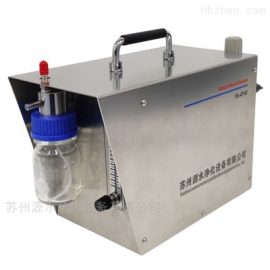Precision Swiss Screw Machining for Complex Components
# Precision Swiss Screw Machining for Complex Components
## The Art of Swiss Screw Machining
Swiss screw machining is a highly specialized manufacturing process that enables the production of intricate, high-precision components with exceptional accuracy. This advanced machining technique has revolutionized the way complex parts are manufactured, particularly for industries requiring tight tolerances and superior surface finishes.
## Why Choose Swiss Screw Machining?
The Swiss screw machining process offers several distinct advantages over conventional machining methods:
– Exceptional precision with tolerances as tight as ±0.0002 inches
– Ability to machine complex geometries in a single setup
– Superior surface finishes without secondary operations
– Efficient production of long, slender parts that would otherwise be difficult to machine
– Reduced material waste compared to traditional machining processes
## Applications Across Industries
Precision Swiss screw machining serves a wide range of industries that demand high-quality components:
### Medical Device Manufacturing
The medical industry relies heavily on Swiss screw machining for producing surgical instruments, implants, and diagnostic equipment components that require absolute precision and reliability.
### Aerospace Components
Critical aerospace parts such as fuel system components, hydraulic fittings, and sensor housings benefit from the tight tolerances achievable through Swiss machining.
### Electronics and Microtechnology
The electronics industry utilizes Swiss machining for connectors, pins, and other miniature components that power our modern devices.
## The Swiss Screw Machining Process
The Swiss machining process differs from conventional CNC machining in several key aspects:
– Guide bushing support: The workpiece is supported close to the cutting tool by a guide bushing, minimizing deflection
– Sliding headstock: The headstock moves while the tools remain stationary, allowing for precise machining of long parts
– Multiple tool operations: Simultaneous machining operations reduce cycle times and improve accuracy
## Material Versatility
Swiss screw machines can work with a wide variety of materials, including:
– Stainless steels (303, 304, 316, etc.)
– Titanium and titanium alloys
– Aluminum and brass
– Plastics and engineered polymers
– Exotic alloys for specialized applications
Keyword: Swiss Screw Machining
## Quality Assurance in Swiss Machining
Reputable Swiss machining providers implement rigorous quality control measures:
– In-process inspection using advanced metrology equipment
– Statistical process control to maintain consistent quality
– Full traceability of materials and processes
– Certification to industry standards (ISO 9001, AS9100, etc.)
## Choosing the Right Swiss Machining Partner
When selecting a Swiss screw machining provider, consider these factors:
– Experience with your specific component requirements
– Capability to handle your production volume needs
– Quality certifications and process controls
– Technical expertise in material selection and process optimization
– Ability to provide design for manufacturability feedback
## The Future of Swiss Screw Machining
As technology advances, Swiss screw machining continues to evolve with:
– Integration of Industry 4.0 technologies for smart manufacturing
– Advanced automation for increased productivity
– Improved tooling materials and coatings for extended tool life
– Enhanced software for more efficient programming and simulation
For complex components requiring the highest levels of precision, Swiss screw machining remains the gold standard in manufacturing technology.


